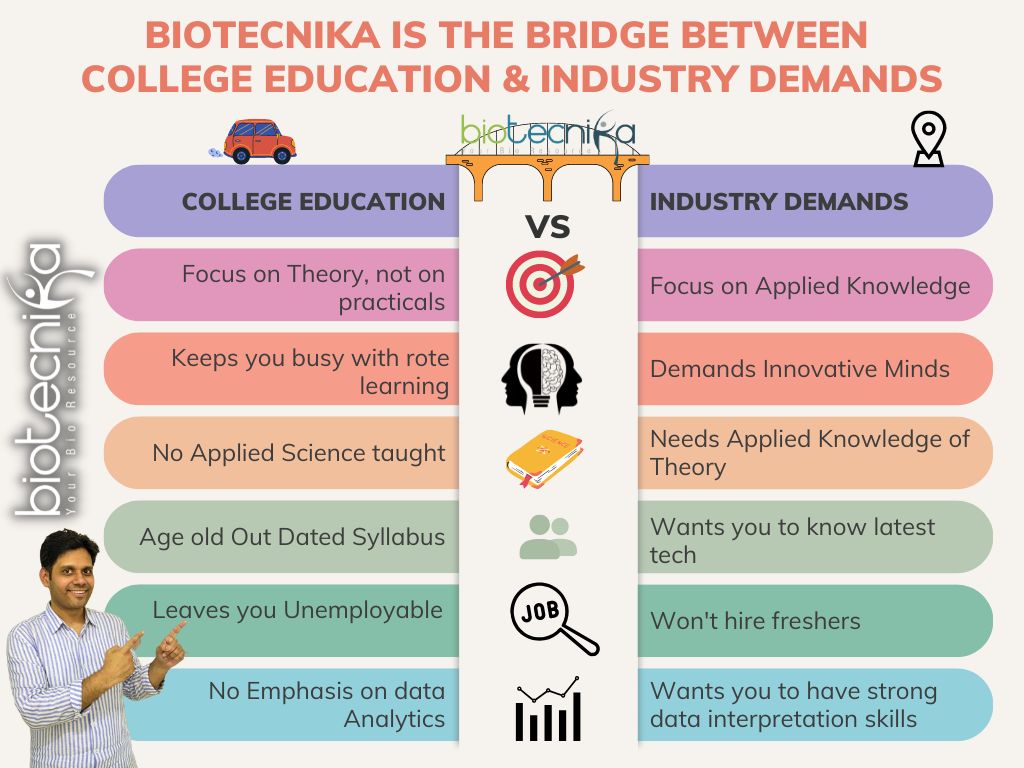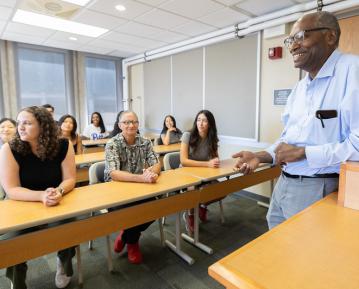Our Bioinformatics Tutor Diaries
Our Bioinformatics Tutor Diaries
Blog Article
Bioinformatics Tutor Can Be Fun For Everyone
Table of ContentsWhat Does Bioinformatics Tutor Do?The Ultimate Guide To Bioinformatics TutorBioinformatics Tutor for DummiesAbout Bioinformatics TutorSome Ideas on Bioinformatics Tutor You Need To Know
Initial job development is rather lengthy, as it includes cautious planning of the topic, structuring of deliverables, and factor to consider of the skills and experience levels of individuals. When a job has actually been plainly specified and carried out, it has the prospective to be reused in future sessions with only small alterations to mirror updates in the area or accommodate distinctions in individual backgrounds. This makes project-based learning a sustainable and reliable mentor strategy in the future, particularly in rapidly progressing techniques like bioinformatics.To make sure continuity and reproducibility of understanding, supplying shared laboratory note pads-- either physical or digital-- is important. These notebooks act as joint logs where students can videotape their development, code, methodologies, and results throughout the program. Not only do they strengthen learning by motivating documentation and representation, but they likewise function as post-course reference materials that individuals can speak with in future study or scholastic tasks.
Coaches play a vital duty in the success of project-based programs. Preferably, mentors ought to be active researchers with a thorough and updated understanding of both the theoretical structures and sensible applications of bioinformatics in their respective self-controls. Their capacity to bridge facility principles and real-world implementation is important in aiding trainees browse the obstacles of interdisciplinary research study. Moreover, coaches likewise function as good example and influence trainees to proceed seeking careers in computational biology and associated fields.
5 Simple Techniques For Bioinformatics Tutor
An additional trick facet of the discovering process is offering participants the opportunity to offer their job to others, especially to an audience past their instant project team. Final presentations or mini-conferences permit trainees to articulate their searchings for, get constructive feedback, and gain self-confidence in connecting scientific content. This discussion element is typically a favored among pupils, as it verifies their efforts and highlights the real-world significance of their work.
The performance of this method was evidenced by the extremely favorable responses received after the preliminary program was provided. The success motivated repeat offerings of the same training course format in 2015 and 2016. Each model of the program was fine-tuned based on individual responses and progressing best techniques in pedagogy. These adaptations made certain that the core purposes-- hands-on understanding, collaboration, and used problem-solving-- stayed undamaged while broadening the deepness and breadth of topics covered.
A noteworthy visualization that caught participant belief was a word cloud produced from actions to the 2014 end-of-course study. This visual comments strengthened the program's emphasis on experiential knowing and mentor support.
The contributions of people such as Rustici, G., Orchard, S., Cowley, A., and Twells, R., along with other participants of the EBI user-training-working team, were crucial in improving the program structure and material. Their understandings aided form a versatile and inclusive design that could be adapted to various institutional and local contexts.
The Buzz on Bioinformatics Tutor

Jones, Rasmussen, and Moffitt (1997) likewise promoted for interdisciplinary discovering with collective project work, noting its ability to imitate specialist environments and prepare pupils for future academic or industry roles. In a comprehensive testimonial, Thomas (2000) evaluated several studies on PBL and concluded that pupils not just carry out well academically but additionally establish a deeper understanding of the subject matter and boosted team effort skills.
In the context of bioinformatics education and learning, cutting-edge methods like classroom video games and simulation-based training have actually likewise been employed. Schneider and Jimenez (2013) presented the use of interactive video games to show biological information integration, making it possible for students to realize complicated concepts via experiential discovering. This kind of gamification enhances the hands-on learning highlighted in project-based training courses by introducing a component of fun and competition, which can better boost interaction.
Returning to the program discussed right here, the lessons picked up from the application of project-based discovering in a bioinformatics establishing have wider effects for various other STEM areas. The technique highlights not simply technical efficiency, yet also communication, partnership, and critical thinking-- abilities that are increasingly valued in both academia and market.
The Best Guide To Bioinformatics Tutor
The scalability of the training course format also go to these guys makes it a feasible design for other organizations. With suitable modification based upon regional demands, offered sources, and individual profiles, the framework can be replicated or adapted for use in various other clinical domain names. Furthermore, the addition of structured mentorship Extra resources and assessment techniques helps make certain consistent top quality and quantifiable understanding end results.

Finally, project-based knowing in bioinformatics provides a powerful approach to training complicated, interdisciplinary material in a way that is both accessible and intellectually boosting. By stressing partnership, useful application, and critical query, such efforts not only boost private knowing but likewise add to the cultivation of a brand-new generation of skilled and cutting-edge researchers.
Some Ideas on Bioinformatics Tutor You Need To Know

One more key element of the knowing process is supplying participants the possibility to present their work to others, specifically to an audience past their instant task group.In the more comprehensive academic literary works, project-based understanding (PBL) has been thoroughly examined and confirmed as an efficient approach for promoting deep understanding, crucial reasoning, and transferable skills. Adderley et al. (1975) stressed the value of job approaches in higher education and learning, noting that they advertise energetic knowing and freedom. Schneider and Jimenez (2013) introduced the use of interactive games to instruct organic data combination, making it possible for trainees to realize complex concepts with experiential understanding.
Report this page